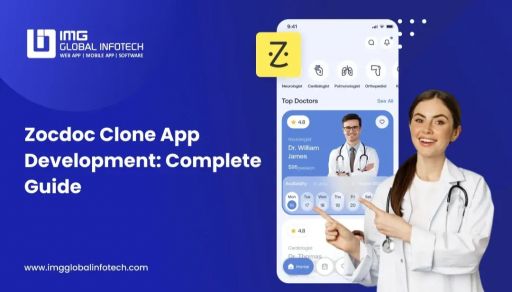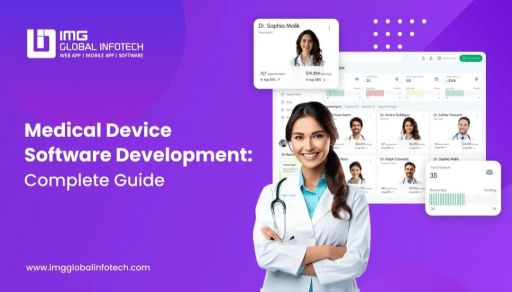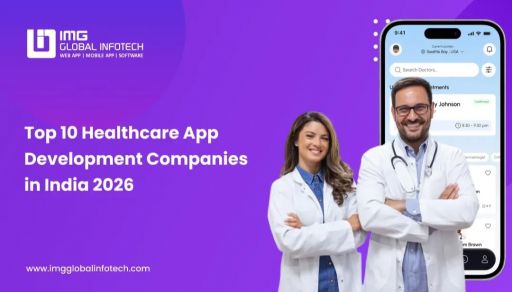10 Things You Should Know Before Developing Your Mobile App
Lokesh Saini
Jul 24, 2020

In today’s fast-moving digital landscape, mobile phones have gone from being simple communication tools to becoming an extension of our daily lives. People now shop, bank, book tickets, track health, and even manage businesses from their phones. Behind this massive mobile revolution are mobile applications that bring convenience, speed, and seamless user experiences.
Businesses across industries are looking to Mobile App Development Services that not only serve their customers better but also boost their digital presence. But diving head-first into development without planning is risky. There are many things to consider when developing an app, from understanding your audience to choosing the right tech stack.
If you’re wondering what the best way to develop mobile apps is, this comprehensive guide is for you. We’ll also walk you through the process of building an application, covering all the essentials for success.
Also Read - Top 15+ Mobile App Development Companies In 2026
1. Thorough Market Research: The Foundation of App Success
Before writing a single line of code, conduct comprehensive market research. This phase helps you validate your idea, study competitors, identify gaps, and gather insights into what works and what doesn’t.
Ask yourself:
-
What problem does my app solve?
-
Who else is offering similar solutions?
-
How can my app stand out?
Look into app reviews of competitors, analyze their feature sets, and identify pain points that users often mention. The more research you do, the more refined and targeted your app concept becomes.
2. Define and Understand Your Target Audience
Your app is only as useful as it is relevant. That’s why it’s critical to identify and understand your target audience early on. This influences design, features, platforms, language, and even your marketing tone.
For instance, an app designed for seniors will need larger fonts and simple navigation, while one for teenagers might prioritize speed, gamification, and social sharing.
Key things to consider when developing an app for your audience:
-
Age group, geography, interests
-
Mobile usage habits
-
Preferred platforms (Android or iOS)
Read More - Step By Step Process On How To Build A Mobile App From Scratch
3. Focus on User Experience (UX) From Day One
One of the best ways to develop mobile apps is by prioritizing user experience. UX encompasses everything from loading speed to button placement. A poor UI UX can lead to high uninstalls, while a seamless experience boosts engagement.
Tips for great UX:
-
Simple, intuitive navigation
-
Fast load times
-
Minimal steps to complete actions (e.g., checkout or sign-up)
-
Accessibility features for users with impairments
Invest in wireframes and prototypes early in the process of building an application to map out the user journey.
4. Design Matters First Impressions Count
Your app's interface is often the first thing users notice. A clean, attractive design builds trust and encourages interaction. A poor or outdated design, even if functional, can lead to app abandonment.
Best design practices:
-
Use modern UI/UX design principles
-
Stick to a consistent color scheme and typography
-
Maintain a visual hierarchy
-
Use intuitive icons
Hiring an experienced designer or a UI/UX team will go a long way in improving user satisfaction and retention.
5. Plan Intuitive Navigation
As apps grow in complexity, users must be able to navigate between different screens or actions effortlessly. Consider how users will move through the app and use logical patterns.
Use features like:
-
Navigation drawers
-
Tab bars for multi-screen functionality
-
Gesture controls (swipes, pinches)
Tools like Navigation Controllers (for iOS) or Jetpack Navigation (for Android) can help manage screen transitions effectively.
Related Post - Top Mobile App Ideas For Startups In 2026 To Make Money
6. Privacy and Security Cannot Be Overlooked
Mobile apps often access sensitive data contact lists, locations, financial details. This makes security a top priority in the process of building an application.
To ensure security:
-
Use HTTPS for data transmission
-
Encrypt stored data
-
Implement secure authentication (like biometrics or 2FA)
-
Follow GDPR, HIPAA, or other relevant regulations
Being transparent about data collection and usage builds user trust and helps avoid legal troubles.
7. Decide Your Monetization Strategy Early
Creating an app costs money. But how will you make that money back or generate profit? There are several monetization models depending on your app's purpose and audience.
Common strategies include:
-
Freemium model: Free to use with premium features behind a paywall
-
In-app ads: Generate revenue through ad impressions or clicks
-
Subscription model: Great for content, fitness, or learning apps
-
E-commerce integration: Sell products or services directly
-
Donations or crowdfunding: Ideal for non-profit or community-based apps
Choosing the right model early ensures that your development supports it structurally.
8. Choose the Right Platform & Tech Stack
Should you build for Android, iOS, or both? Native or cross-platform?
Consider:
-
Native development (Swift/Kotlin): Better performance, more control, but higher cost
-
Cross-platform (Flutter/React Native): Cost-effective, faster development, slightly lower performance
-
Progressive Web Apps (PWAs): Browser-based, work across devices
Your choice depends on audience, budget, and required features. For most startups, launching on one platform and scaling later is a smart strategy.
9. Prepare for Ongoing Updates and Maintenance
App development is not a one-time process. To stay competitive and maintain user satisfaction, continuous improvement is crucial.
Updates may include:
-
Bug fixes
-
UI/UX improvements
-
Security patches
-
New features or integrations
-
OS compatibility (iOS/Android updates)
Set aside budget and resources for post-launch maintenance. Regular updates also help with App Store rankings.
Also Read - Best 19 Apps All Indians Must Have On Their Mobile Phones
10. Develop a Solid Marketing and Launch Strategy
Even the best app will fail if no one knows about it. Start working on your marketing strategy well before launch.
Proven marketing techniques:
-
Pre-launch campaigns: Email lists, teasers, social media buzz
-
App Store Optimization (ASO): Optimize title, keywords, and screenshots
-
Influencer partnerships: Especially useful for niche or lifestyle apps
-
Content marketing: Blogs, how-tos, and SEO-optimized web content
-
Referral programs: Encourage users to invite others
Your launch is just the beginning. Invest in post-launch user acquisition and engagement tactics.
-
 Zocdoc Clone App Development: Complete Guide
Zocdoc Clone App Development: Complete Guide
-
 How Much Does It Cost to Develop a Generative AI App? (2026 Guide)
How Much Does It Cost to Develop a Generative AI App? (2026 Guide)
-
 Medical Device Software Development: Complete Guide
Medical Device Software Development: Complete Guide
-
 Top 10 Healthcare app development companies in India 2026
Top 10 Healthcare app development companies in India 2026
-
 Flutter for MVP Development: The Fastest Way to Build MVPs in 2026
Flutter for MVP Development: The Fastest Way to Build MVPs in 2026
-
 Healthcare App Development Cost 2026: Complete Breakdown
Healthcare App Development Cost 2026: Complete Breakdown
Lokesh Kumar is the Digital Marketing Manager & SEO Content Strategist at IMG Global Infotech, a top-rated Web & Mobile App Development Company. With extensive experience in digital marketing, SEO, and content strategy, he specializes in boosting online visibility and driving organic growth for startups, SMEs, and global brands. Lokesh is passionate about creating SEO-friendly, user-centric content that not only ranks but also converts. His deep understanding of digital trends and search algorithms helps businesses thrive in a competitive online space.







